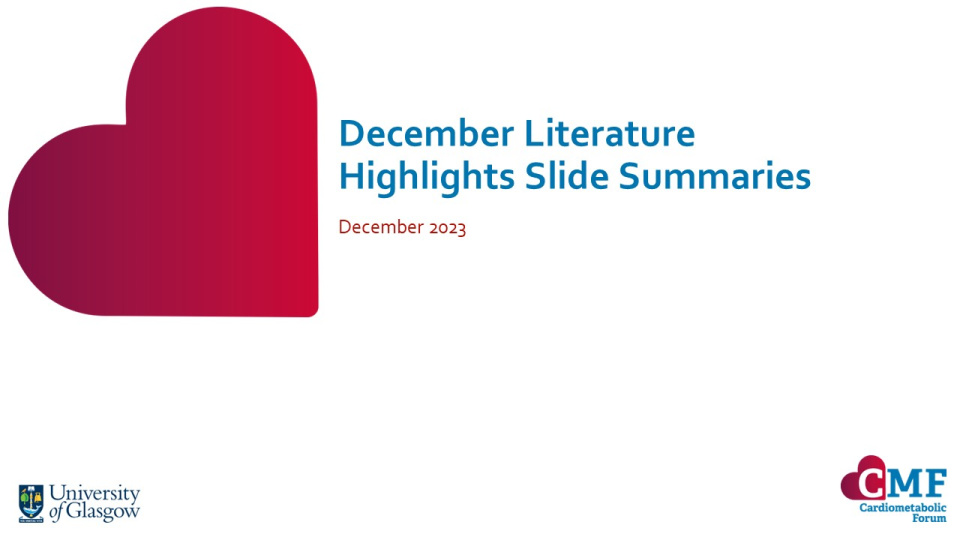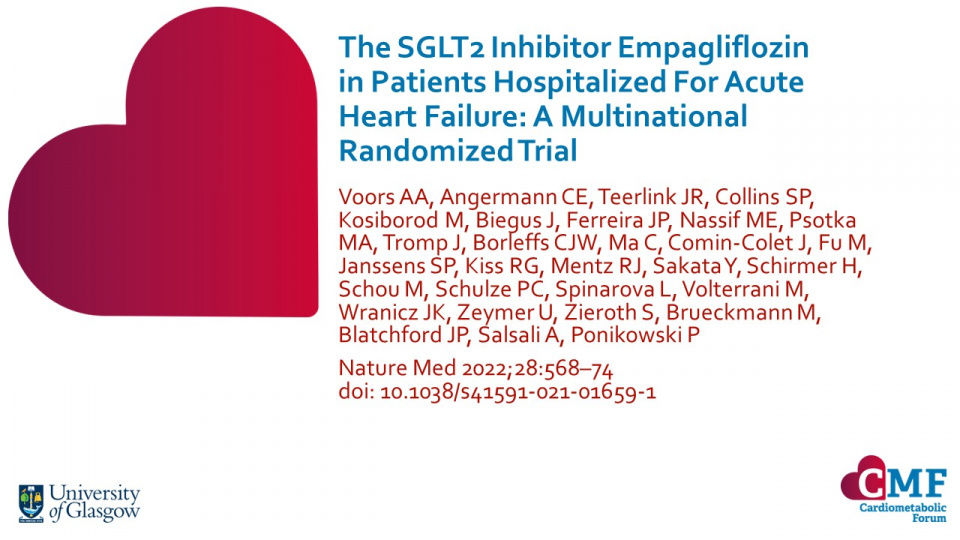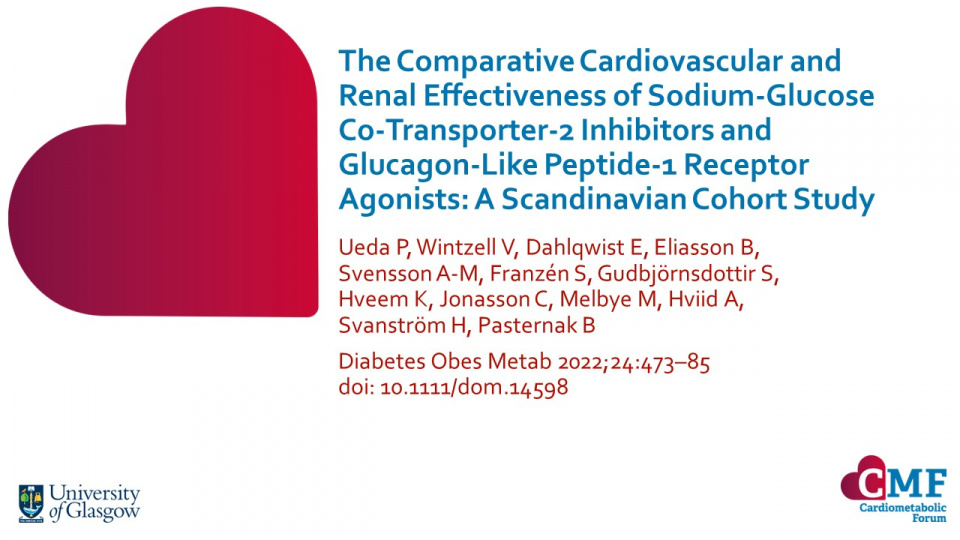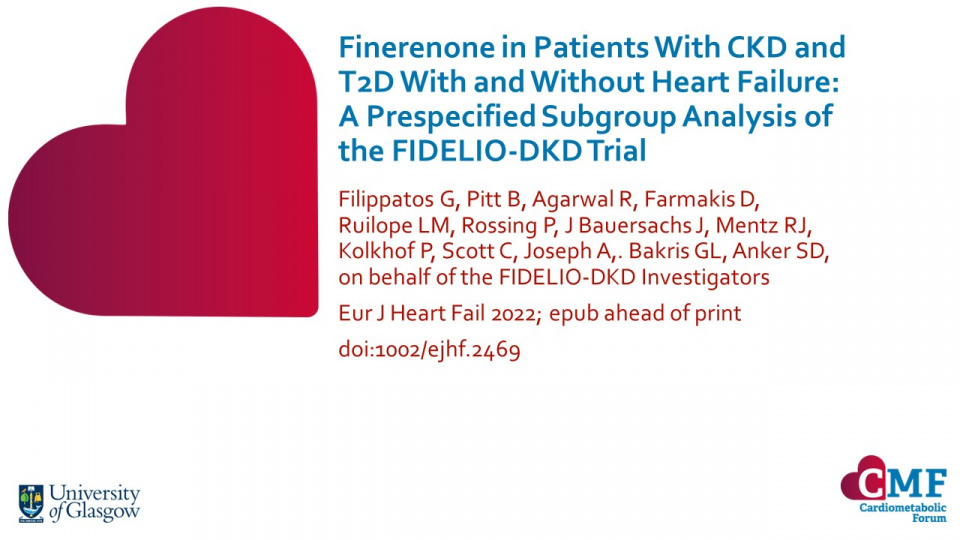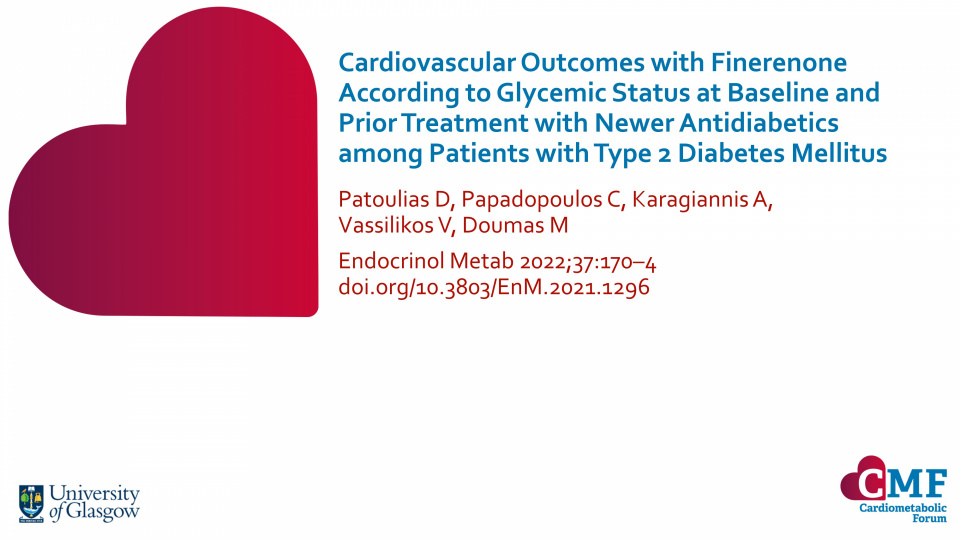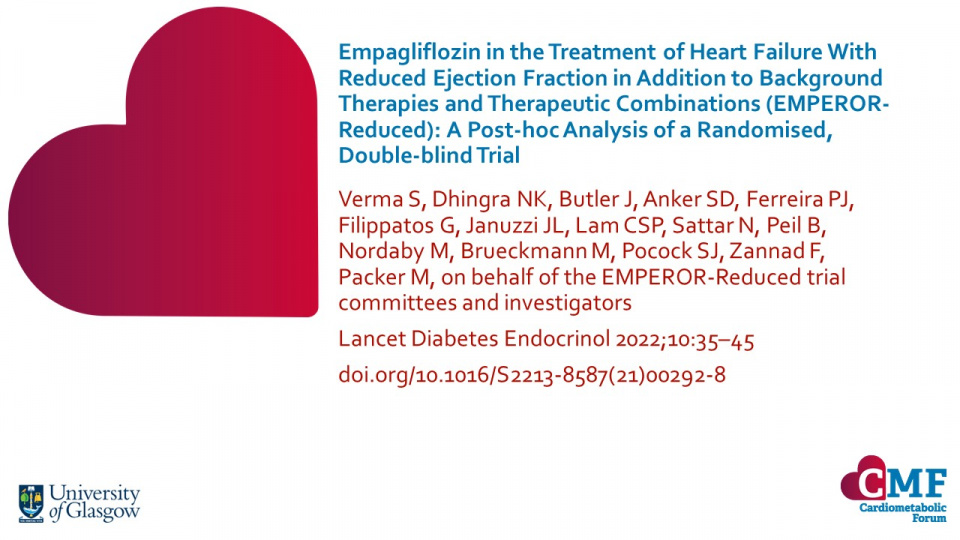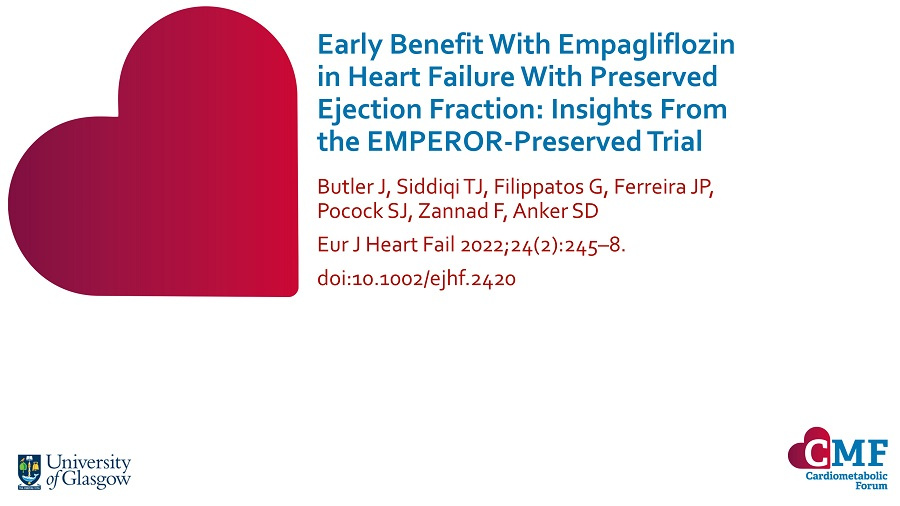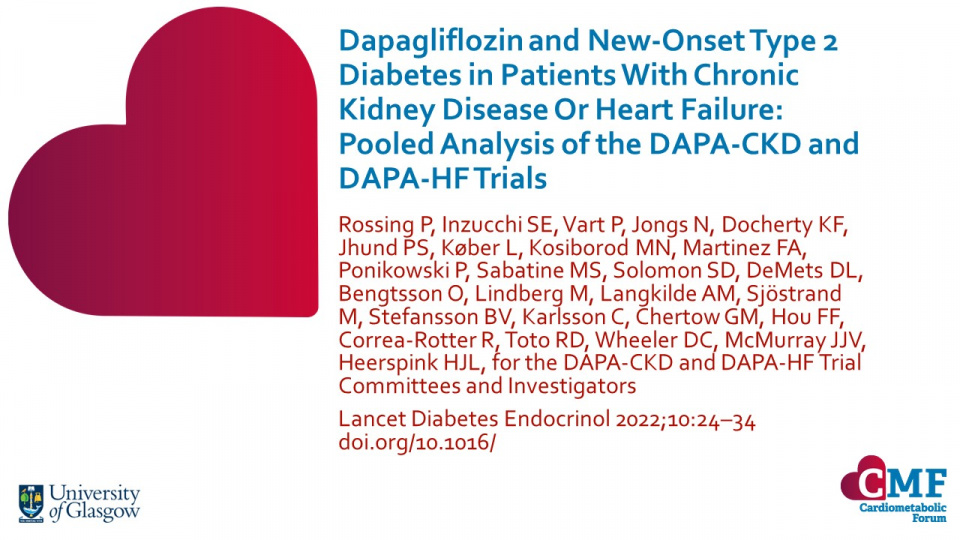Publications
Stay up to date with our literature reviews which are curated by experts to feature the most important publications released each month. Explore our publications for access to concise summary slides for your own use.
The SGLT2 Inhibitor Empagliflozin in Patients Hospitalized For Acute Heart Failure: A Multinational Randomized Trial
Nature Med 2022;28:568–74 doi: 10.1038/s41591-021-01659-1
Empagliflozin is well tolerated in patients hospitalised for acute heart failure, resulting in significant clinical benefit 90 days after treatment initiation.
The Comparative Cardiovascular and Renal Effectiveness of Sodium-Glucose Co-Transporter-2 Inhibitors and Glucagon-Like Peptide-1 Receptor Agonists: A Scandinavian Cohort Study
Diabetes Obes Metab 2022;24:473–85 doi: 10.1111/dom.14598
In this study by Ueda et al., SGLT2 inhibitors were associated with a similar risk of heart failure and a lower risk of serious renal events compared with GLP-1 receptor agonist,s and the use of GLP-1 receptor agonists was associated with a slightly lower risk of MACE compared with SGLT2 inhibitors.
Finerenone in patients with CKD and T2D with and without heart failure: A prespecified subgroup analysis of the FIDELIO-DKD trial
PMID: 35239204 DOI: 10.1002/ejhf.2469
This subgroup analysis of the FIDELIO-DKD trial discovered that finerenone improved cardiorenal outcome in patients with chronic kidney disease and type 2 diabetes.
Cardiovascular Outcomes with Finerenone According to Glycemic Status at Baseline and Prior Treatment with Newer Antidiabetics among Patients with Type 2 Diabetes Mellitus
Endocrinol Metab 2022;37:170–4; doi.org/10.3803/EnM.2021.1296
Finerenone induced a 13% risk reduction in MACE (a composite of death from CV causes, nonfatal myocardial infarction, nonfatal stroke, or hospitalisation for heart failure) regardless of prior glycaemia. There was no difference in finerenone-derived MACE benefits whether patients were on baseline SGLT2i or GLP-1RA or not.
Empagliflozin in the Treatment of Heart Failure With Reduced Ejection Fraction in Addition to Background Therapies and Therapeutic Combinations (EMPEROR-Reduced): A Post-hoc Analysis of a Randomised, Double-blind Trial
Lancet Diabetes Endocrinol 2022;10:35–45 doi.org/10.1016/S2213-8587(21)00292-8
The data from the trial suggests that empagliflozin may be considered as a foundational therapy in heart failure with reduced ejection fraction. This post-hoc analysis of EMPEROR-Reduced – a randomised, double-blind, parallel-group trial – by Verma et al. evaluated the efficacy and safety of empagliflozin in patients with heart failure with reduced ejection fraction and to baseline treatment.
Early Benefit With Empagliflozin in Heart Failure With Preserved Ejection Fraction: Insights From the EMPEROR-Preserved Trial
Eur J Heart Fail 2022;24(2):245–8. doi:10.1002/ejhf.2420
Results reinforce sustained clinical, health status and quality of life benefits with empagliflozin in patients with HF‑pEF, and underscore the need for timely initiation of therapy.
Dapagliflozin and New-Onset Type 2 Diabetes in Patients With Chronic Kidney Disease Or Heart Failure: Pooled Analysis of the DAPA-CKD and DAPA-HF Trials
Lancet Diabetes Endocrinol 2022;10:24–34 doi.org/10.1016/
Chronic kidney disease and heart failure are insulin resistant states associated with high incidence rates of diabetes. Rossing et al. carried out a two Phase 3, randomised, double-blind, placebo-controlled trials assessed the effect of dapagliflozin on new-onset type 2 diabetes, in a pooled analysis of data from 6,608 individuals.

